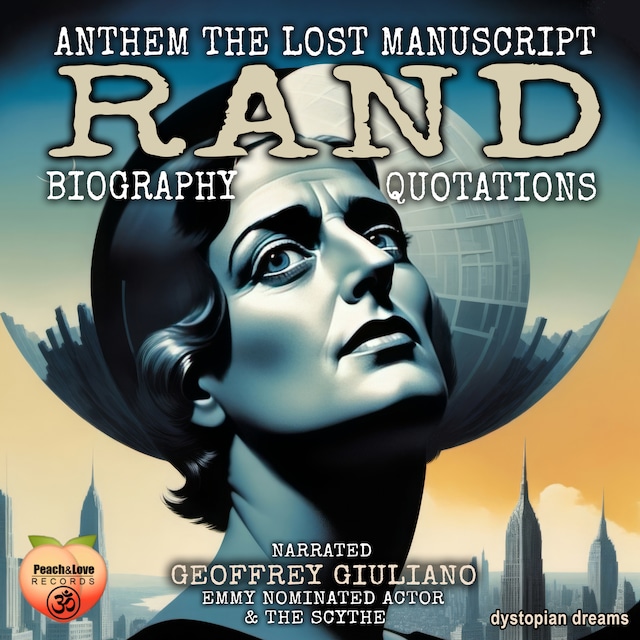
Description of the book
Ayn Rand, a Russian-American novelist and philosopher, is best known for her philosophy of Objectivism, which champions reason, individualism, and capitalism. Her works, like The Fountainhead and Atlas Shrugged, argue that pursuing rational self-interest is the highest moral good and that laissez-faire capitalism is the ideal system for human flourishing. While celebrated for inspiring movements emphasizing personal freedom and free markets, Rand’s philosophy remains polarizing, critiqued for its rejection of altruism and emphasis on individual over collective needs. Her legacy endures as a catalyst for debates on ethics, economics, and the role of government.
Ayn Rand’s Anthem is a dystopian novella set in a world where individuality has been entirely erased in favor of collective identity. The story follows Equality 7-2521, a man who dares to think beyond the rigid confines of his society, where even the word "I" is forbidden. Through his journey of self-discovery and defiance, Rand explores the dangers of extreme collectivism, portraying a world where conformity suppresses creativity, innovation, and the human spirit. Equality’s eventual embrace of his individuality and rejection of societal norms symbolize the triumph of personal freedom over oppressive conformity.
The novella reflects Rand’s broader philosophical ideals, particularly her belief in the importance of reason and individualism. Anthem is a stark warning against losing personal identity and a celebration of the human capacity to think, create, and thrive when unshackled by collective control. Through its evocative prose and profound themes, the story challenges readers to consider the value of self-expression and the perils of a world that prioritizes the group over the individual.


